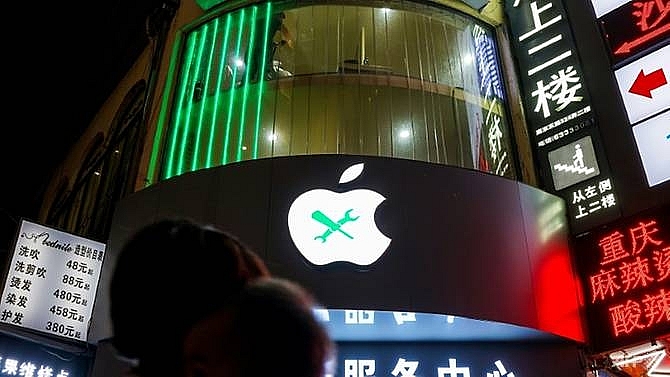China to punish IP infringers after US trade truce
 |
| Intellectual property includes intangible creations like patents, trademarks and copyrights AFP/CHANDAN KHANNA |
The National Development and Reform Commission, China's state planner, along with 37 government departments, released a joint policy to deal with serial IP infringers, who will face a raft of tough punishments and restrictions if blacklisted.
The crackdown comes days after US President Donald Trump and Chinese leader Xi Jinping agreed at a summit in Argentina to hold off on new tariffs while negotiators seek a deal.
Trump has imposed levies on billions of dollars worth of Chinese imports, in part as punishment over alleged IP theft, which the US says costs its companies as much as US$600 billion a year - which China has denied.
Following the trade war truce, the White House said the two sides had agreed to negotiate "structural changes" to enhance IP protection in China.
IP includes intangible creations like patents, trademarks and copyrights. Under the policy unveiled Tuesday, China will build a social credit-type system for the field, publishing a national list of serious IP offenders.
The national IP Administration will make it more difficult for firms and individuals who make the list to register patents.
Other departments will limit or prohibit offenders' access to government support and state procurement contracts. Their offences will be recorded in the firm's or individual's credit history.
Individuals would also be restricted from holding board positions at state-owned companies, buying property or going on extravagant holidays.
Banks are instructed to more carefully consider extending credit lines, while firms will be prohibited from issuing corporate bonds.
Qualifying for the "serious dishonest behaviour" IP list will require repeatedly infringing on patents, not abiding by past IP enforcement rulings, and providing fabricated documents while applying for patents, among other things.
"For those of us in the industry of protecting intellectual property rights, this is definitely a welcome measure," said Bob Jin, a partner at LexField law firm, focusing on intellectual property law in Beijing.
The measures takes protection a step further by using public power to punish serial offenders, he said.
In situations with serious repeat offenders, "we don't have a good way to deal with it, so this is actually filling in some blanks," Jin said.
A recent report by US Trade Representative Robert Lighthizer's office accused China of a campaign of state-backed cyber-attacks on American companies.
Seeking to shake its reputation for counterfeit goods, China has in recent years taken steps to improve IP protection, including establishing specialised IP courts to handle patent disputes, copyright and trademark infringement.
What the stars mean:
★ Poor ★ ★ Promising ★★★ Good ★★★★ Very good ★★★★★ Exceptional
Related Contents
Latest News
More News
- Russian President congratulates Vietnamese Party leader during phone talks (January 25, 2026 | 09:58)
- Worldwide congratulations underscore confidence in Vietnam’s 14th Party Congress (January 23, 2026 | 09:02)
- Political parties, organisations, int’l friends send congratulations to 14th National Party Congress (January 22, 2026 | 09:33)
- 14th National Party Congress: Japanese media highlight Vietnam’s growth targets (January 21, 2026 | 09:46)
- 14th National Party Congress: Driving force for Vietnam to continue renewal, innovation, breakthroughs (January 21, 2026 | 09:42)
- Vietnam remains spiritual support for progressive forces: Colombian party leader (January 21, 2026 | 08:00)
- Int'l media provides large coverage of 14th National Party Congress's first working day (January 20, 2026 | 09:09)
- Vietnamese firms win top honours at ASEAN Digital Awards (January 16, 2026 | 16:45)
- ASEAN Digital Ministers' Meeting opens in Hanoi (January 15, 2026 | 15:33)
- ASEAN economies move up the global chip value chain (December 09, 2025 | 13:32)

 Tag:
Tag:




















 Mobile Version
Mobile Version